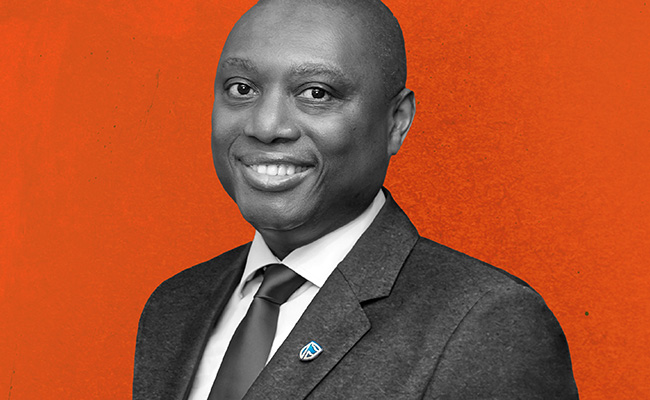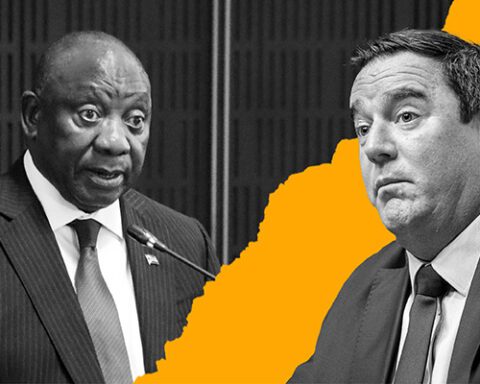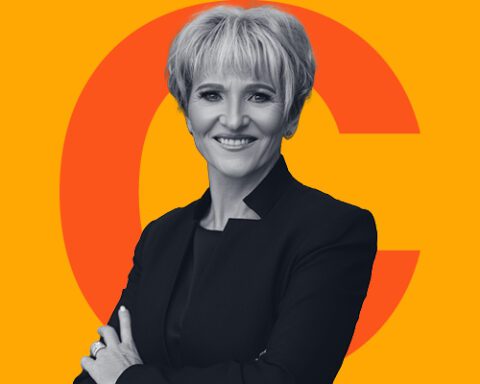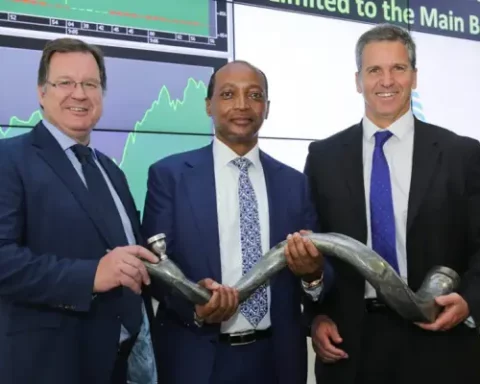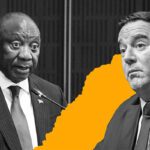“What’s there not to like?” quips Standard Bank Group CEO Sim Tshabalala during a call with Currency on Thursday to discuss annual results. Investors seemed to agree: the bank’s share price recorded its biggest gain since mid-August, far outperforming its peers, closing 4.7% up on the day.
Over one year, Standard Bank’s shares are 15.4% higher – beating FirstRand, which has gained 12.5%, and Nedbank (up 13.9%), but underperforming Absa (up 18.6%). None of the original big four banks have come anywhere close to Capitec, however, which is 40% ahead.
In Standard Bank’s case, headline earnings for 2024 rose 14% in constant currency, which the lender says better reflects its underlying performance by stripping out foreign exchange fluctuations. Other highlights included lower credit impairment charges, a 6% dividend increase, and a strong showing from its insurance and asset management unit.
“This institution and its businesses are in rude health,” says Tshabalala, adding that this is evident in the level of activity in the company. “More of our clients are doing more with us, and it’s in large numbers.”
That was most pronounced in the second half of the year, as lending in South Africa picked up pace. In investment banking, loans surged 53% compared to the first half, business lending rose 25%, home loans climbed 19%, and vehicle and asset finance (VAF) in the commercial segment grew 11%. Unsecured lending edged up just 2%, while consumer vehicle finance fell 9% as the bank actively reduced risk in that portfolio.
“It’s people buying trucks, fixing their factories, buying machinery.”
Never one to shy away from a silver lining, Tshabalala says: “The government of national unity [GNU] is an excellent tonic for South Africa, and it is going to be long-lasting. I’m in the camp that believes this is the direction in which South Africa is going.”
GDP numbers for 2024, where South Africa grew all of 0.6%, belie this confidence, but in the bank, he says, the momentum experienced in the back of last year continued into 2025.
“When I think about the retail bank, the applications in all those products – other than VAF – they’re continuing the momentum that we saw in the second half of last year,” he says.
“The same applies to business and commercial – the number of conversations my colleagues are having with their clients, the number of applications, and the number of drawdowns is continuing to accelerate.”
The other teams are also still busy. “Likewise, in the corporate and investment bank – the investment bankers are looking through and talking to their clients about refurbishing factories, buying equipment – that is continuing.”
Tshabalala appears undeterred by this week’s fractious events in parliament, when Enoch Godongwana’s budget was met with outrage by the ANC’s coalition partners after the finance minister, for the second time, proposed VAT increases.
“Coalition governments are fragile, but there’s evidence to suggest that ours is robust,” Tshabalala says. That optimism is rooted in the willingness shown by parties to engage each other and their openness to solutions. “That’s healthy, that’s democracy.”
As far as the budget is concerned, he argues that it strikes a “pragmatic” balance between bringing the government’s debt under control, especially through the “tough love” it is giving Eskom and Transnet by resisting further bailouts, while also providing increased benefits for the poor.
Organic growth
Standard Bank, which has operations in 26 countries, estimates that South Africa’s GDP will expand by 1.7% in 2025, inching up to 2% in 2026. It sees faster economic growth in Africa of about 4%.
“And given that, the opportunity for growth is still in Africa,” Tshabalala says. “If you’re servicing people who are buying and selling, trading and investing, they’re doing that in an environment that is growing. So, we’re in the right place.”
In terms of expansion, Standard Bank doesn’t “wake up every morning looking for acquisitions”, says Tshabalala. “But if businesses that are appropriately priced at the right level of risk present themselves, we do pursue them, and buy them.”
The lender is still chasing plans to open a representative office in Egypt, which will give it access to the Middle East and North Africa. And it’s in talks with Angolan authorities about increasing its stake in its operations there, while Stanbic IBTC in Nigeria recently raised capital through a rights issue to bolster its corporate and investment banking business. Its objective to accelerate growth in East Africa stays unchanged, he says.
Standard Bank’s expansion will come the “hard way”, through organic growth.
“We focus mainly on the existing business we’ve got and try to serve our clients,” Tshabalala says. “Just get more clients, increase the number of clients, get them to do more with you, find ways of adding value so you can charge them a price they’re willing to pay for your services, and minimise your costs.”
That’s easier said than done, but if the market’s view is correct, the bank appears to be getting it right.
Top image: Standard Bank CEO Sim Tshabalala. Picture: supplied.
Sign up to Currency’s weekly newsletters to receive your own bulletin of weekday news and weekend treats. Register here.
